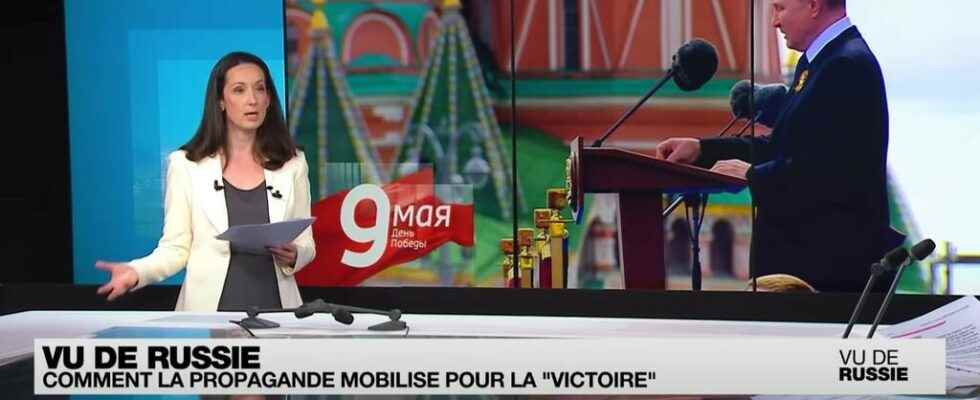The media workshop receives the Franco-Russian journalist Elena Volochine, who for ten years was a correspondent in Moscow, to draw up an inventory of the Russian information landscape and better understand how people get information in Russia in 2022.
In Russia, since the beginning of the war in Ukraine, it has become almost impossible to exercise the profession of journalist. That’s whyElena Voloshinafter a decade of correspondence in the country, left in emergency on March 4, 2022.
For the past few weeks, she has presented a column every Friday on France 24 entitled Seen from Russia in which she deconstructs the propaganda broadcast on Russian television.
At the microphone of The media workshopElena Voloshin recounts how she experienced the beginning of the war and why she chose to leave Russia when in the Russian media a “ absolutely totalitarian propaganda “. Hundreds of other journalists whose media have ceased circulation have made the same choice, like those of the newspaper Novaya Gazeta or television Dojd.
State media have become mouthpieces for Kremlin propaganda, says Elena Voloshin. We see there talk shows rivers devoted to what is always called a “special operation” but ” there is no image of destruction caused by the Russian army in Ukraine “.
Selected excerpts:
” In Russia, the media have always been either for or against. There has never really been neutral and independent journalism according to our own canons […] that is to say that we have ethical rules, deontological, that we simply apply to the letter, we in the media in France, in any case that we try to enforce, we, at our level of journalists . »
” I’m in something that somewhere almost surpasses me as a journalist, because in Russia for example, to talk about journalists, they often say “I’m an activist and I’m a journalist”. That for us is absolutely absolutely unthinkable. You can’t be both a journalist and an activist. Either you serve a cause, or you are a journalist and you are neutral. »
“ In fact, it is informational warfare except that the propaganda brandishes it as an informational warfare that would be waged against Russia by the West. And in that sense, well the Russians have no understanding at all of what a media and informational space is. And in fact for them, as soon as they look for information, as soon as they go to read a message, it will be a message conveyed by someone who has political interests behind it. »
Subscribe to the “Media Workshop” podcast
The Media Workshop is available to listen to every Saturday on all podcast platforms: Apple Podcasts, Spotify, Deezer, Podcast Addict, Castbox, Google Podcasts, You do not In or any other application using the RSS feed.
If you like this show, give it 5 stars and post a comment on podcast listening apps so that it is visible and therefore even more listened to.
As World Refugee Day approaches on June 20, Mondoblog audio give the floor to Patrick Hakiza, a Congolese refugee blogger in Uganda. From Kampala, he discusses the crucial issue of schooling for children living in refugee camps in Uganda: it stopped dead at the height of the Covid-19 pandemic, with all schools having closed. Since then, life has resumed, but many establishments have still not reopened, which is very bad for the life balance of these refugee children.
